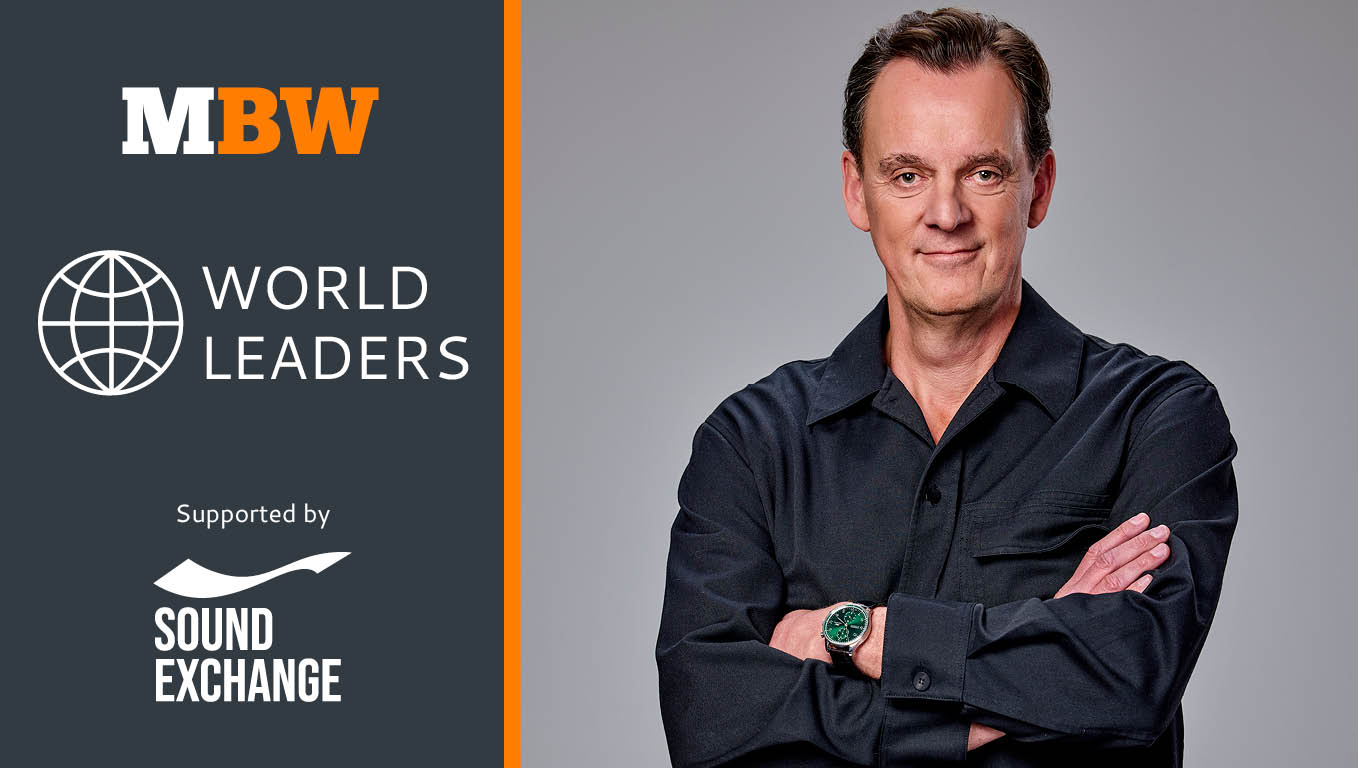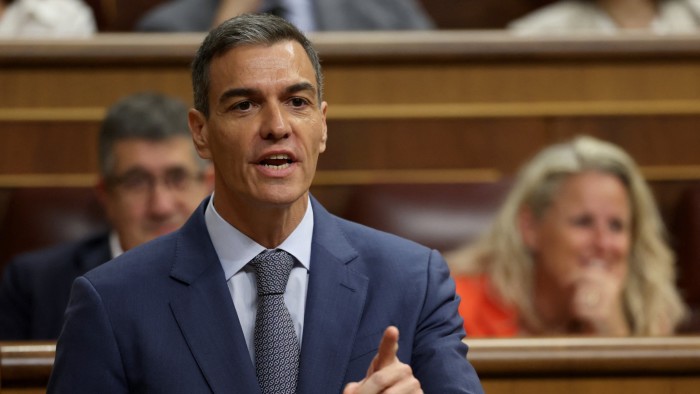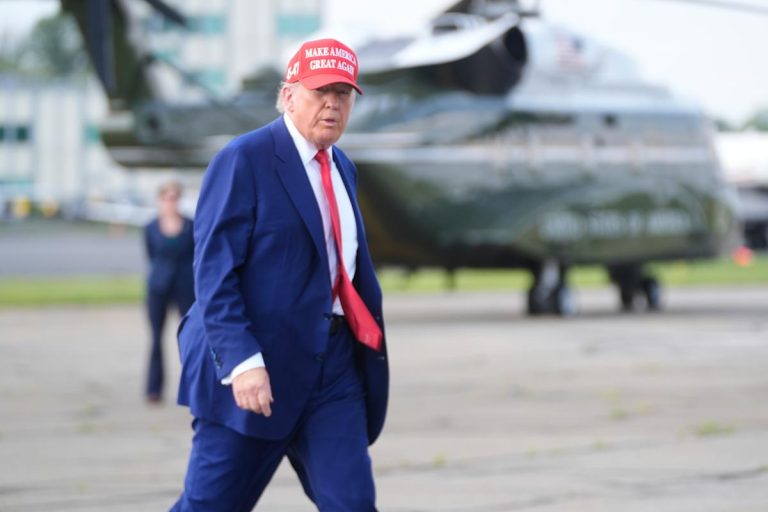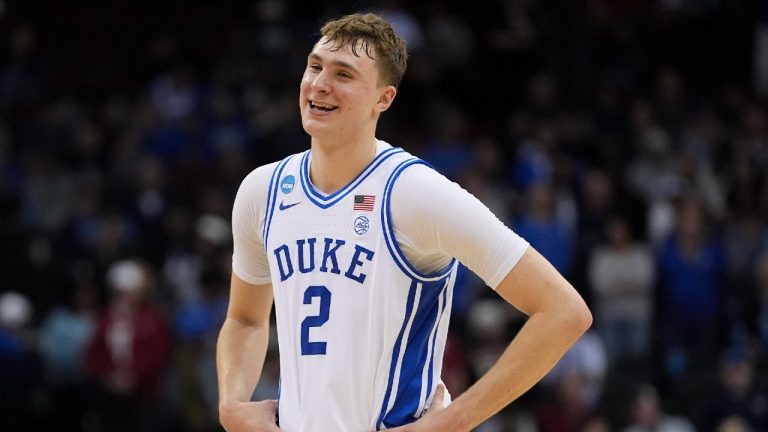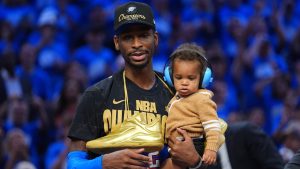MBW’s World Leaders is a regular series in which we turn the spotlight toward some of the most influential industry figures overseeing key international markets. In this feature, we speak to Niels Walboomers, President, Recorded Music and Publishing, Benelux, Warner Music Group, which includes the powerhouse dance label Spinnin’ Records. World Leaders is supported by SoundExchange.
When Dutch pop sensation Roxy Dekker’s album Mama I Made It covered 8 out of 10 spots in the Netherlands Spotify charts in March, and reached No.5 on the global Spotify Top Albums chart, it was a career-defining moment.
Not just for the artist, but for the executives who signed and developed her.
The artist was first signed to Warner Chappell Music Benelux through Head of A&R Lekeisha Irion, then developed across both publishing and recording divisions.
The result: four No.1 hits in the Netherlands in 2024, an Edison Award for Best Newcomer, and her smash Sugardaddy featuring 100% Warner Chappell Music songwriters.
The Roxy Dekker success story exemplifies the integrated publishing and recorded music approach taken by Niels Walboomers.
Walboomers joined Warner in 2022 from Sony Music Publishing, where he served as Benelux Managing Director for 12 years, working with Eurovision 2019 winner Duncan Laurence, Grammy-winning producer Tierce “Kizzo” Person, and others.
But his music industry roots run much deeper. In 1996, Walboomers co-founded Walboomers Music with his brother, starting as a distributor for hip-hop, Latin, reggae and world music before becoming a successful independent label, publisher, and artist management company.
That entrepreneurial spirit has proven invaluable at Warner, where he’s been given significant autonomy to reshape the company’s Benelux strategy.
He’s overseen the move to Amsterdam Music Harbor, a multi-level creative hub featuring four high-quality recording studios alongside the company’s offices, creating what he calls a “hit factory” environment.
His acquisition strategy has been equally impactful. In October 2024, Warner acquired prominent Dutch label Cloud 9 Records, home to artists including Claude (who represented the Netherlands in Eurovision 2025), Jaap Reesema, Kris Kross Amsterdam, Snelle, and Turfy Gang.
Simultaneously, Warner Chappell Music Benelux struck an administration deal with Blue Skies Publishing, adding around 100 songwriters and catalogs containing more than 100 Top 40 hits.
The publishing operation has been particularly active in signings, recently adding breakthrough dance producer CYRIL – whose Stumblin’ In has generated almost 570 million streams and peaked in the global Shazam Top 5; and Amsterdam’s Mau P, whose Drugs from Amsterdam topped Beatport‘s Top 10 chart for over a month in 2022.
In March 2025, Walboomers added another major responsibility to his remit when he was appointed the head of Spinnin’ Records, the Amsterdam-born dance label acquired by Warner in 2017 in a deal worth over $100 million.
Beyond his executive roles, Walboomers has been deeply involved in industry governance, serving as Chair of the Dutch music publishers’ association NMUV (2014-2018), as a board member of the Belgian music publishers’ association BMPA (2014-2022), and as Secretary to the Supervisory Board of Dutch collecting society Buma/Stemra (2011-2023).
Here, Walboomers discusses his entrepreneurial approach within a major label structure and the strategic advantages of overseeing both publishing and recordings. He also shares his vision for Spinnin’ Records and why he believes Europe’s collecting society system desperately needs an overhaul…
Warner Music Benelux has seen significant growth under your leadership. What were your key objectives when you first took the role?
One of the main goals was to achieve a dominant position in the local market. Markets [globally] are localizing with more and more local music, so if you don’t contribute to that, it really hurts your market share.
Warner struggled with that in the Benelux region because two decades ago, WMG decided to shut down the local operation. Then, 10 years ago, when you already saw a shift to more local music, Warner tried to do more in that side of the market, but they didn’t succeed.
“When you focus on young talent and develop it successfully, it has an enormous impact on the market.”
My focus was on young talent because, when you focus on young talent and develop it successfully, it has an enormous impact on the market. Almost everyone we have signed hasbeen between 16 and 23, with some minor exceptions.
I really followed my gut feeling, because radio at the time in Holland was saying, “We’re actually not going to support a lot of local language music.”
My opinion was that if you look online, at TikTok and Spotify, the local presence is enormous. So I decided to focus on that.
You’ve had experience in both publishing and recorded music throughout your career. How important was it for you to have control of both sides at Warner?
Combining records and publishing was a key goal. With Sony [Music Publishing], I had limitations in working with the recording side. Most of my successful acts were [signing with] Universal Recordings, which was the primary player in the Benelux market.
I always found it unfortunate because, as a publisher, you work behind the scenes, but you have a bigger role than a lot of people realize. A lot of people don’t really understand what a publisher does and what a good publisher means.
“As a publisher, you work behind the scenes, but you have a bigger role than a lot of people realize.”
For instance, we developed Duncan Laurence, who won Eurovision with Arcade. None of the labels were interested in him. And then we suddenly had this song, which went to Universal and won Eurovision after 41 years of Holland not winning. But the record was with Universal, so as a publisher, if you do the development and a recording company steps in, you kind of lose the creative control.
Now with Warner, I have the opportunity to work on both sides. It feels like you’re in full control of the whole process – from picking something up, going into the studio, finding direction, creating a vision with the A&R team, working closely with the social teams, and then putting it in the market.
How have you managed to apply your entrepreneurial principles within the corporate environment of a major label?
If you have your own company, you also have constraints. You need to pay taxes, you need to have your admin in order. So as long as it’s clear what the constraints are, and I have enough freedom to move within them to do what I think we need to do, then I can still keep my entrepreneurship.
What helps is that my boss [Guy Moot] is not in Amsterdam [laughs]. He’s in LA, Simon [Robson] is in London, so it still feels like my own company, although I know I work for Warner.
They treat me really well and gave me the freedom to do what I think needs to be done, with the office, with the investment in the new office (The Amsterdam Music Harbour), and with the employees we have.
I really had the freedom without having to deliver a detailed 100 page-plan. They gave me the trust: “We’ve seen what you’ve done so far. It’s been successful. Here are the keys.”
Within the major system, if you look at the opportunities it gives you instead of the limitations, it offers lots of possibilities. So it’s actually more balanced in a positive way than a negative way. At least that’s my experience so far.
How has your publishing-first approach impacted the way you develop artists?
It goes both ways. Some things can start at publishing and go to recordings. Other things can start with recordings and go to publishing. Publishing has a longer-term scope and gives you the time and room to develop.
For instance, if an artist sends a demo and you think, “This is good, this has potential, but it needs room,” with the publishing side you can say, “This person is really talented. It’s not ready yet for the recording side, but let’s get them in the family.”
As soon as it develops, you can look at it and say, “It’s still not there for the recording side, but let’s put it in distribution with ADA,” and then you can grow it from there. They’re already a family member, which makes it much easier to have a discussion about doing a record deal later.
With Roxy Dekker, who became a phenomenon in Holland, my publishing A&R had a big impact on getting the deal, and together with my recording A&R, Soraib El-Jelali, both working together actually increased the chance of doing a deal.
With another artist, Antoon, who’s also one of the biggest local artists, we were trying to sign him while he was speaking with our competition. Nobody talked about publishing except us. We said, “Let’s try and look at both sides.” And funnily enough, they liked it and said, “We like the company. We like the people here. Why don’t we put it in one place? It’s much more convenient.”
Amsterdam Music Harbor seems to be a significant part of your strategy. How important is this creative hub to your vision?
It’s a game-changer, especially having studios in the office. In most companies, studios are in the basement or hidden away, but with us, it’s on the same level as the company.
We had Cyril there writing for a month. We have Roxy there, and when we’re working on a new [artist], Roxy sees them in the hallway and says, “Let’s make a TikTok post.” Suddenly the artist has 1.1 million views on TikTok. It’s natural.
Nobody pays for the studios. If the masters and publishing are with Warner, we control it, but there are lots of outside people too – there are no restrictions. Everybody wants to be there. Other artists looking for a deal come along and say, “This is the place where I want to be.”
It’s really one of the most essential things in our offering. A lot of people talk about data, databases and all that. Yes, it’s true, we need data and it’s important, but it still comes down to bringing talent together and creating the right environment. I don’t think that’s ever going to change.
You’ve taken on the role of President at Spinnin’ Records. How do you see the label positioned within Warner Music globally?
Spinnin’ is in a unique position because they can make use of the major system, but they’re not fully into the major system. So we have flexibility to do things differently than what’s usual in the Warner system. It gives us a lot of opportunities to be a really global company from the Benelux.
It should be the powerhouse of dance for Warner. The history was targeting local talent, which is logical because that’s where it started. That’s still really important because there’s a lot of talent in Holland, and still a lot of big names coming from there.
What I want to do is get back with some of those talents to work again, but also focus on future young talent, and that could be much broader than only Holland. One example is Cyril. Spinnin’ found him when he was living in Australia, making music in his room at home, and now he’s become a global force in dance. Stumbling In was the No.1 airplay song in Europe last year and his new single There She Goes is #1 Viral on TikTok in the US this week
The power of Spinnin’ has not been really maximized in the Warner system yet. I only think in opportunities, and I think there are many more opportunities for us to explore in the Warner world.
We need to find more big stars. Of course, it’s complicated, but we don’t need to find 100 stars. We just need to find a couple, and then we can really make an impact in the Warner system, showing that we can make a difference in this side of the market.
You’ve made some acquisitions recently, including CLOUD 9. What’s the strategy behind these deals?
It aligns with the goal to become the number one local player. With Cloud Nine, we got deals with some magnificent artists. That’s why we’re doing Eurovision with Claude. We have Kris Kross Amsterdam. They’re also always working on new talent.
Raymond [van Vliet], who founded Cloud Nine, is still working for us and looking at how we can grow the Cloud Nine brand. The brand isn’t going to disappear because it has a strong reputation in the Benelux market.
The last couple of weeks, we became the market leader in Holland, both on radio and in the charts. Cloud Nine contributed to that.
What are the biggest challenges for artists in the current market?
One of the big challenges is that there are so many releases, both locally and internationally. How do you become visible? How do you make sure people can connect with your song or with you as an artist?
Authenticity is really important. I don’t think AI can be authentic. People nowadays, because they’re so immersed in the online world, can really see what’s real and what’s manufactured.
Another challenge is helping artists get a sustainable career, so they need to be able to make a living from it. Not just have that one hit and then be out of it, but really build for the longer term.
With Warner, we hope to provide them with the right environment to grow and develop and feel secure, and also have the time to do that, which sometimes is a challenge. With publishing, you can really say, “This takes years.” With records, it also needs to be now, because of the business dynamic behind it, so that makes it more challenging on the recording side to work on those careers.
If there was one thing you could change about the music business, what would it be?
If I’m really honest, I hope an outsider will challenge the current collecting society system, with all these societies across Europe doing the same thing but separately. If somebody would think about a system today, it wouldn’t look like it does now. Hopefully, one day, it will be more transparent and more efficient.
What’s missing is a GRD [Global Repertoire Database]. I know it’s been tried for years to build. I think, actually, with AI, you could build it pretty fast. It’s still complex because it’s a complex market, but it would make sense to have a body for all of Europe, if not all over the world.
“The creative community is already becoming a global community, and the system should follow that. But it feels like everybody’s on their own island, protecting their own territory, while the world is connected.”
The creative community is already becoming a global community, and the system should follow that. But it feels like everybody’s on their own island, protecting their own territory, while the world is connected.
Not having a database showing who has the rights geographically makes it so complicated. It goes further than songwriters and publishers, because it also affects brands wanting to use a song. “I want to do a global ad with this song.” But the rights in America are with this company, the rights in Europe are with that company.
It’s very complex for everyone, and I think that’s actually a limitation to growing business. Opening that up will create more opportunities than just efficiency. It will also grow the business.”

SoundExchange was independently formed in 2003 to build a fairer, simpler, and more efficient music industry through technology, data, and advocacy. The only organization designated by the U.S. government to administer the Section 114 sound recording license, SoundExchange collects and distributes digital performance royalties on behalf of 700,000 music creators and growing.
Music Business Worldwide
